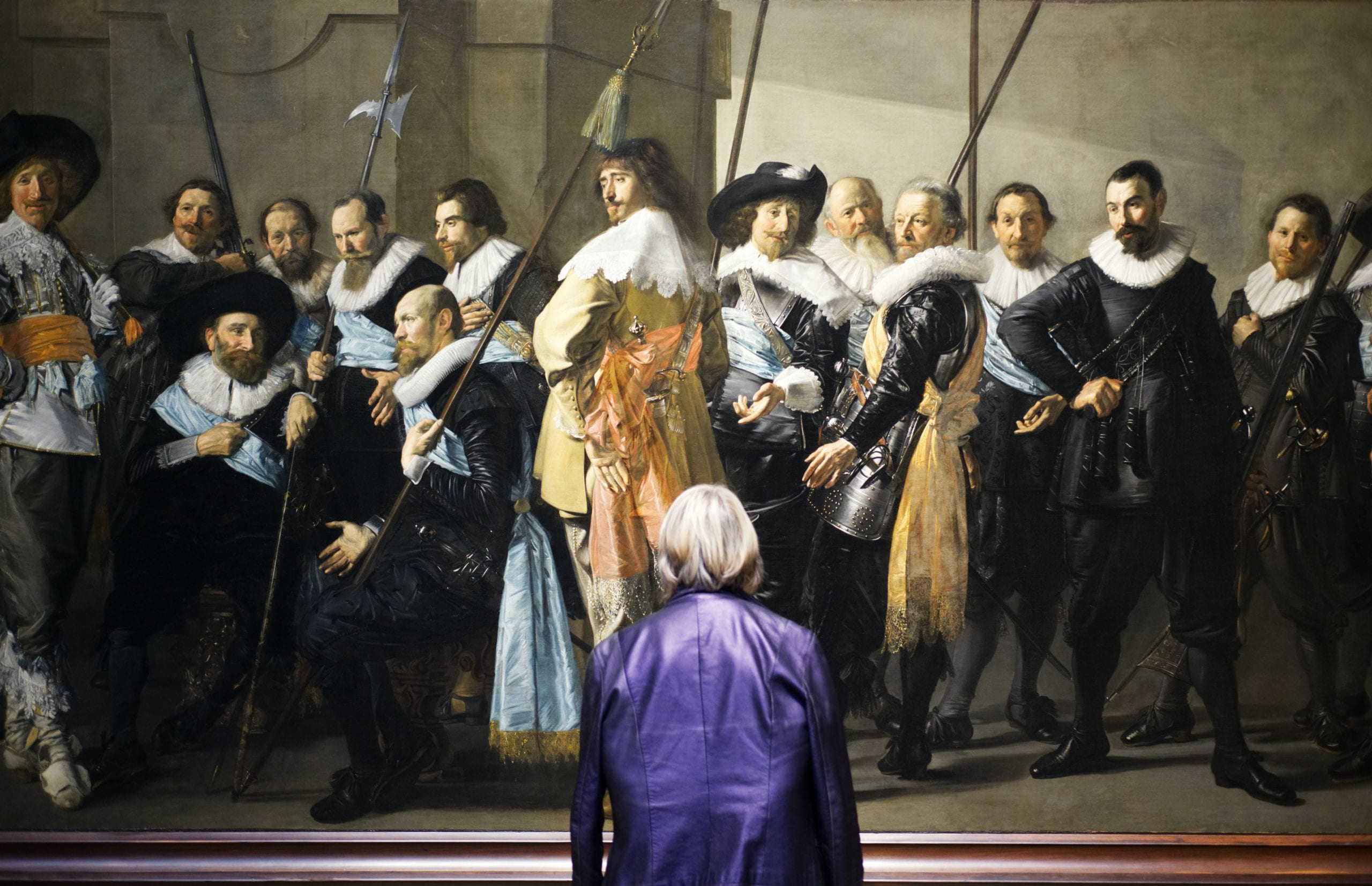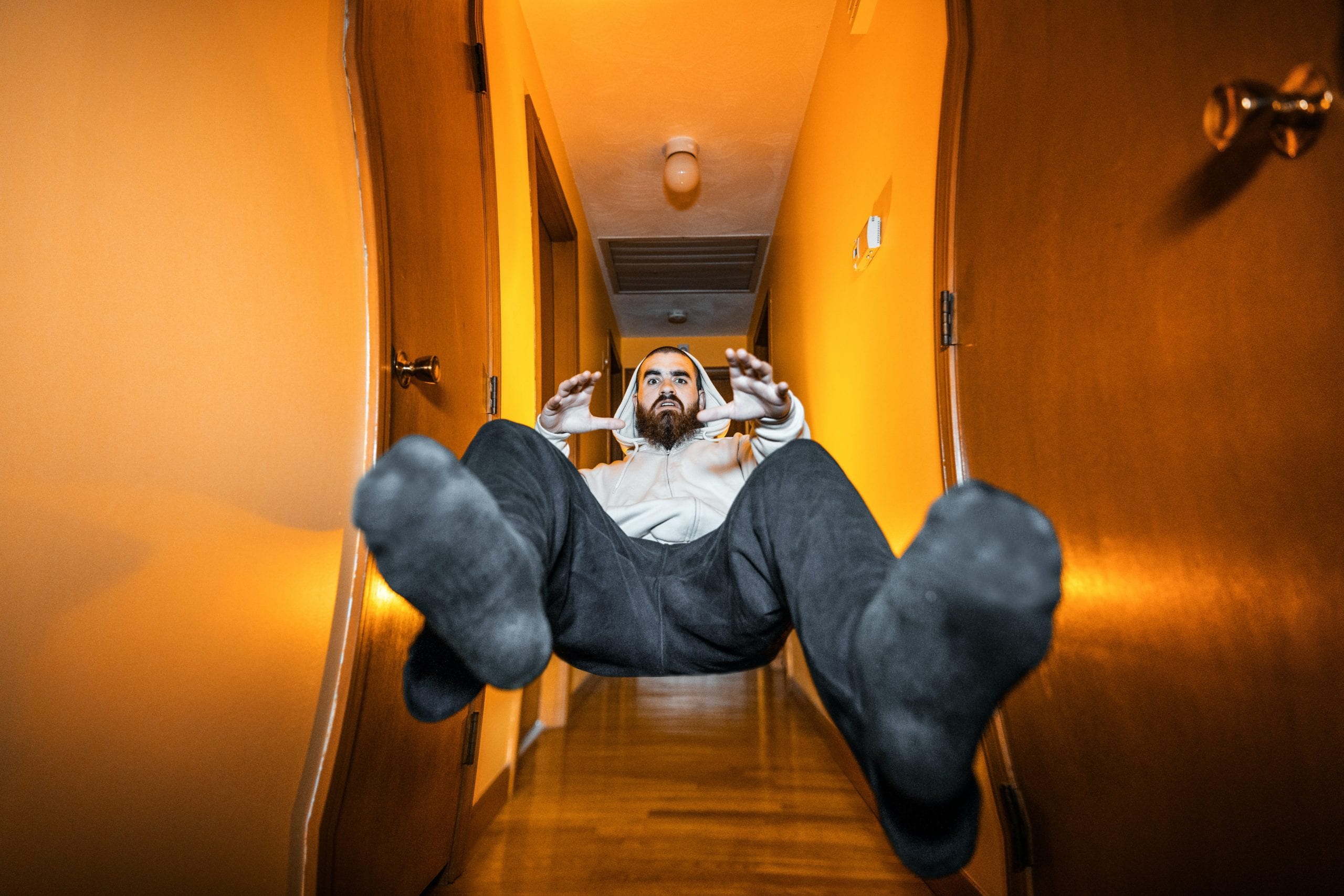I grew up in a fundamentalist Christian community and around high school essentially started a very slow “deconversion” process that eventually led to my comfortable adoption of the word “atheist” several years later.
I’m very familiar with what it’s like to go from a believer to a non-believer, but I have often wondered what it must be like to go the other way, and even whether it could happen to me at some point.
Former atheists of Reddit, what made you turn to religion? from AskReddit
So why do the skeptical find themselves entering the fold? Let’s hear from some self-professed former atheists of Reddit.
1. At death’s door
I wouldn’t say I was ever an atheist as most would describe. I never actively denounced religion or Christ. But I never really thought of it a whole lot growing up or thru my 20s.
Almost two years ago I set next to my grandfather basically my father as he was the one who raised me while he passed from a long battle with cancer. He was on hospice for 2-3 days at home before he finally passed. I was there right beside him the whole time. The whole experience was so profound. One thing that stood out to me was how he kept calling for his mother and reaching out like he was trying to grab her hands.
She had passed about 7-8 years prior. He would call to her screaming her name. This was steady for 2-3 days before he went.
I know without a doubt there has to be an afterlife after that experience. She came to get her son. And I have no doubt she was in that room with us. You could feel her. The whole family could.
– jb_run29
2. The experience
Not me, a friend of my parents. He suffered a minor heart attack during a business trip, and the moment he arrived at the hospital, he got a massive heart attack.
He was clinically dead for about 2 minutes before he was brought back.
He hasn’t told anyone what he saw, and whenever someone asks, he just says “I really don’t want to talk about it”.
But from that day on, not a Sunday goes by that he doesn’t show up for mass.
– TheDangerHeisenberg
3. Regaining control
I was raised Catholic and was very strong in my faith until I was 26. I don’t think anything took me away from God, I just got busy and wouldn’t go to church, or wouldn’t pray more and more. Then, I found myself agreeing with some atheist thoughts.
It’s weird because the more I parted from the God, the harder life was, and the harder life was, the more I parted from God. It was like a terrible positive feedback loop. By the age of 32, I stopped calling myself Catholic and life was the lowest (loneliness, finance issues, depression, health, anxiety, relationship issues, etc).
About a month before my 33rd birthday, I surrendered my life to God. I told God, I can’t bare the load on my own. I thanked Him for everything and prayed for strength, wisdom, and to guide me on His path. I felt like God told me He was with me through all my suffering and never left my side. He was just kind of waiting for me to come around.
I have been praying again daily. I’m not exaggerating, so many things bad things reversed and I feel better. I’m going to church for the first time today in… years? I like having God in my life—much more peace and happiness.
– Environmental-End115
4. In honor of her
My great uncle was a lifelong atheist til his wife of 50 years died.
She was always begging him to go to church and he would never go with her. When she died he was so devastated he started going to church to feel closer to her. That naturally resulted in him converting.
He loved and missed her so much that he was willing to believe anything that would reunite them. He was a tough man but her death broke him.
He always gave me sh*t for not going to church and it annoyed me but I respected how deeply he loved my aunt. On occasion I would go with him and he was grateful I humored him.
– valerieswrld
5. The how and the why
To be honest? Because I separated the “how” and the “why”.
I accept science explaining the “how’s” (evolution, Big Bang, etc), but they never explained the “whys” for me (and, as an objective tool, science was never intended to explain it regardless).
Religion and science answer different questions, and both are incredibly fulfilling to me.
– Jforest99
6. The phantom radio station
My sister became born again later in life. I had always believed in God but didn’t really have a relationship with him. She became so pushy and changed so much it turned me off to the whole idea of christianity.
She had a son who I was very close with and for a few years after he turned 13 lived with my family. Unfortunately at 17 he got into drugs and ran away. For months we didn’t hear from him then one day he popped up at my sister’s house. Pretty much completely worn down. He looked and smelled terrible.
On my way out to my sister’s I was at such a loss on what to do that I prayed out loud to God to help guide me. I decided to find a worship station and there was a sermon playing that felt like it was directed right at me. Everything that preacher said felt like he was talking to me. A commercial came on and as an inpatient person I looked at the station number and decided to go back in a few minutes…I went back and that station was nothing but static. No music, no sermon it just didn’t exist.
I tried going up and down thinking I mixed up a number but still nothing. I know have a much close relationship with God. Not a full fledged every Sunday at church relationship but a good one.
– littlefootrac
7. Hope is good
I’m starting to realize that it might be actually incredibly good for humans to believe that everything will be ok. Like, in general. Having a purpose and believing that there is a point produces positive brain chemicals.
I’m getting into a specific religion now, including aspects that I don’t necessarily believe are true. Take prayer for example- it doesn’t matter if there’s a beardy dude in the clouds taking notes. It’s not the point – regularly contemplating community and loved ones is a good thing to do. If you need to frame it as talking to a fella in the sky, well then do it to it. To me, faith is more about believing that living a certain way is the best way to live. Whether it’s true or not is besides the point.
That being said, religion is not an excuse to treat others poorly. If someone uses their religion to treat other people poorly, I still look at them the way I look at anyone that treats people poorly.
– lovegiblet
8. Overcoming addiction
I was raised Christian, became an atheist in college and was atheist for more than a decade, but became a Christian again about three months ago.
I fought a war against everything I hated most about myself and lost. When I had lost all hope of ever being able to overcome depression and addiction, I tried praying and, to my great surprise, I received an answer.
In that moment I surrendered my life to God. I will never be able to explain my experience, I don’t have scientifically conclusive evidence, but I will never doubt that God is real after what I experienced. I have overcome my addiction and depression and, while I still have a long way to go, am doing much better than I ever dreamed possible.
– CitizenReborn
9. Less a believer, more a student
Instead of being a Christian, I chose to follow the teachings of Christ. That changed my entire opinion about religion.
I was an atheist throughout college. My major was Philosophy/Religion. Most of what I learned, I used to justify my atheist beliefs. The more I studied, the idea of a creator became more and more intriguing. The ontological perspective just makes practical sense to me.
I dont think I believe the way most people believe, but that’s okay. I’m happy with my worldview and it gives me purpose and meaning. It inspires me to be a better person. No matter your beliefs, if you are striving to do that, and whatever helps you do it everyday, must not be so bad.
– headrons
10. Practices are bigger than truth
I was raised atheist but have always been very open minded. A friend invited me to their church one day. It was a pretty progressive church but also they were serious about faith.
I decided to participate fully in the church for a year regardless of my belief.
As I took part in the practices of christian faith I realized they were as true and something can be true. In the sense that with discernment and rational thinking participating in the Christian faith leads to being a more forgiving, loving, other-centric way of living.
The actual stories in the Bible may be historically true or not true, who really knows. But the practices are bigger than historical truth. They are a deep truth that rattles down in the part of my soul that expands beyond my personal awareness.
So I got baptized and committed to Christianity flaws and all
– zakmcdonald
11. The slow dawning
I was staunch atheist who hated all religion until I had a professor (also an atheist) who convinced me to respect people’s religion.
Around the same time I had a lot of Muslim friends and started learning about Islam and came to appreciate a lot of the “why” behind the practices. I tried fasting and joined in some daily prayers and appreciated the benefits of it.
One day as I was joining in the prayer I realized I was praying and I felt a connection to God that I’d never felt before in my life. I realized I was a believer, and the rest is history.
– cpleasants
12. Finding light
Depression.
I’ve been going to church for a little over a year now and I’m the happiest I’ve ever been in my entire life.
– Foxtrot4321
13. The struggle
Raised atheist, and born gay.
My ex boyfriend taught me all about the Gospel and how Jesus died for me on the cross, all about God’s love and all about Christianity. We stayed together for a bit over a year (my longest relationship), and now we’re not together anymore, because he believes homosexuality is something that can be “resisted” like any other sin.
I’m still lost and confused, but I’m clinging onto my faith more than ever right now because it’s all I have left that’s keeping me up
– rattboy74
14. I agree with the lifestyle
I realized that in my ancestral region of the Maghreb (tamazigha), virtually everyone identifies as Muslim. The idea of atheism just doesn’t process in their minds.
Therefore, I converted to Islam, not because I believe in god but because I agree with the lifestyle.
I enjoy fasting for Ramadan, praying (meditating) 5x/day, abstaining and giving back to the community, et al.
– freedrako
15. Weighing the options
The philosophical answer: I could no longer defend the decision to choose “lack of evidence” over “actual, tangible, and profound impact in my life.”
The religious fanatic answer: I found a religion that’s right for me (Buddhism).
– fonefreek
It’s important that people be allowed to follow the truth where it leads them and to find happiness. So long as your faith is not used as a weapon, I say live and let live.
Do you have a conversion/deconversion story?
Tell us about it in the comments.
The post People Who Used To Be Atheists Share Their Conversion Stories appeared first on UberFacts.









